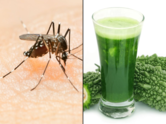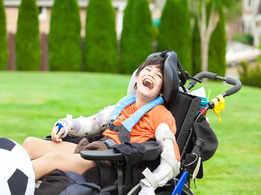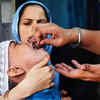01/6Measles outbreak in Mumbai: What parents need to know

Measles, also known as rubeola, is an extremely contagious illness caused by a virus. It can easily spread from one person to another and cause serious complications in small children.
Currently, Mumbai and other neighbouring districts are seeing a dramatic surge in the number of fresh cases and deaths among kids. A one-year-old boy reportedly succumbed to the complications from the disease. Seven deaths and 164 cases of measles have so far been reported in the city as per Brihanmumbai Municipal Corporation (BMC).
While this has caused a lot of concerns among parents, it is important to know that measles is a preventable illness. Proper measures and vaccination can help significantly in preventing the infection.
Also read: Bowel cancer symptom: Seemingly fit man with stage 4 cancer shares his first sign
02/6Early signs to note in kids


Symptoms of measles usually appear 7-14 days after contracting the illness. The most common symptoms include:
- Runny nose
- Hacking cough
- Pink eye (conjunctivitis)
- Fever
Rash associated with measles appears 3 to 5 days after the first symptoms.
Also read: Measles is an imminent threat worldwide due to pandemic, WHO report finds
03/6Vaccination is the key to protection against the viral infection


Vaccines can protect us against a lot of diseases. While it may not guarantee protection, it sure does prevent severity and risk of death.
When it comes to measles, there are two types of vaccines that can protect against it. These include: the measles, mumps, rubella (MMR) vaccine and the measles, mumps, rubella, varicella (MMRV) vaccine.
The MMR vaccine is usually given in two doses, first shot at around the age of 12 to 15 months and the second around 4 or 5 years of age.
The MMRV vaccine is given to children aged 2 months to 12 years. First shot should be given between 12 and 15 months and second between 4 and 6 years.
04/6Avoid contact with infected people


Measles is a highly infectious and contagious disease, which means it can spread easily from one person to another. It can spread when a person infected with measles coughs, sneezes or talks and a person near them breathes in the same air.
That said, make sure that you keep your children away from crowded places and prevent them from going close to someone with the infection.
05/6Follow proper hand hygiene, wear masks and gloves when in company of an infected person


Similar to COVID-19, flu and common cold, which are also transmissible diseases, one must take precautionary measures against measles. Wearing well-fitted masks, following proper hand hygiene and maintaining distance are great ways to not only increase your protection levels, but also keep your children safe.
06/6When to take your child to a doctor?


It is important to recognize the signs of measles on time or it can lead to serious complications.
Some of the most dangerous consequences of measles include blindness, encephalitis (brain swelling), severe diarrhoea and related dehydration, and ear infections. Measles can commonly cause an infection in the lungs such as pneumonia, which can lead to shortness of breath and chest pain.
Call your healthcare provider as and when you see the early signs. Avoid waiting for it to get worse.























































































closecomments
SIGN IN WITH
FacebookGoogleEmail